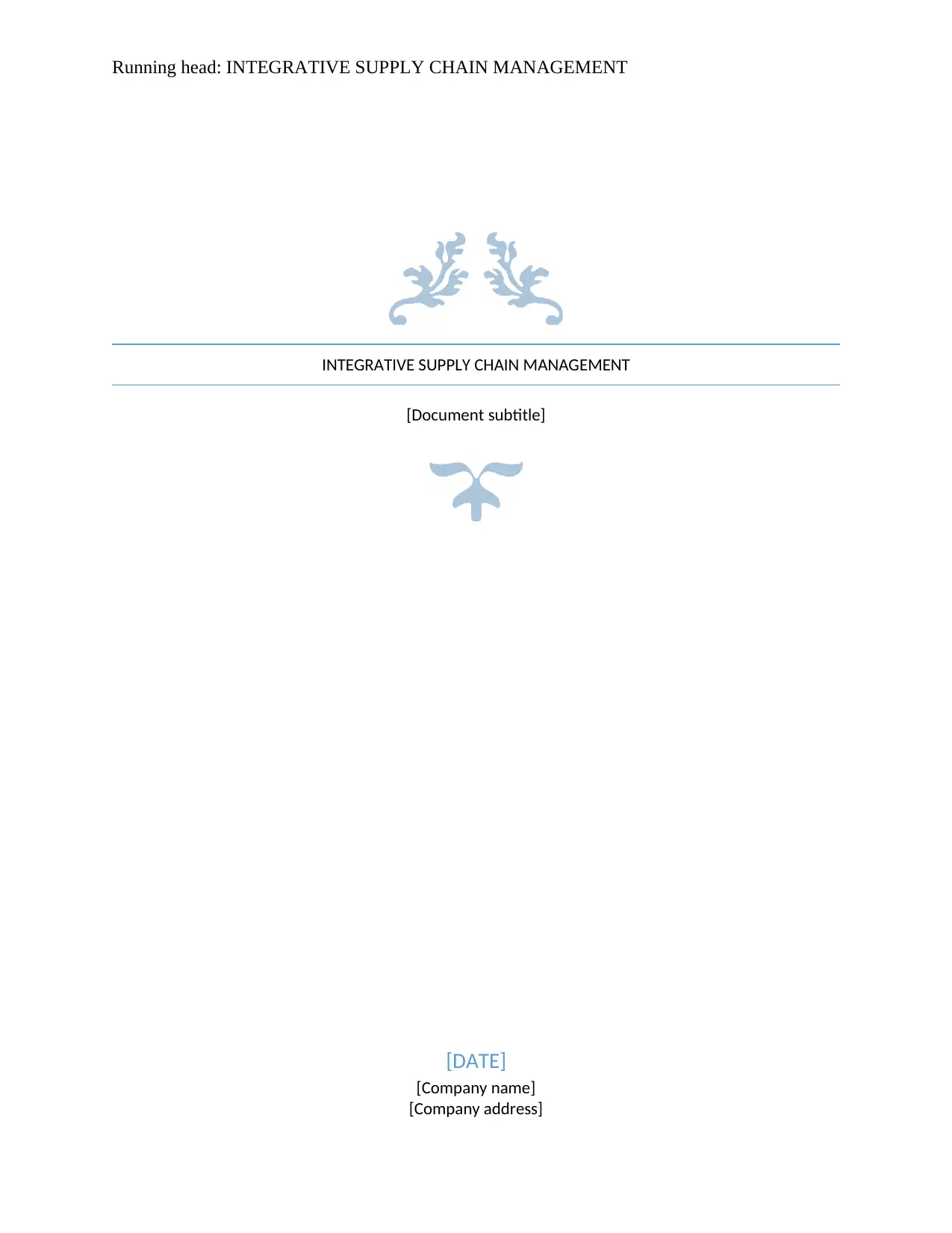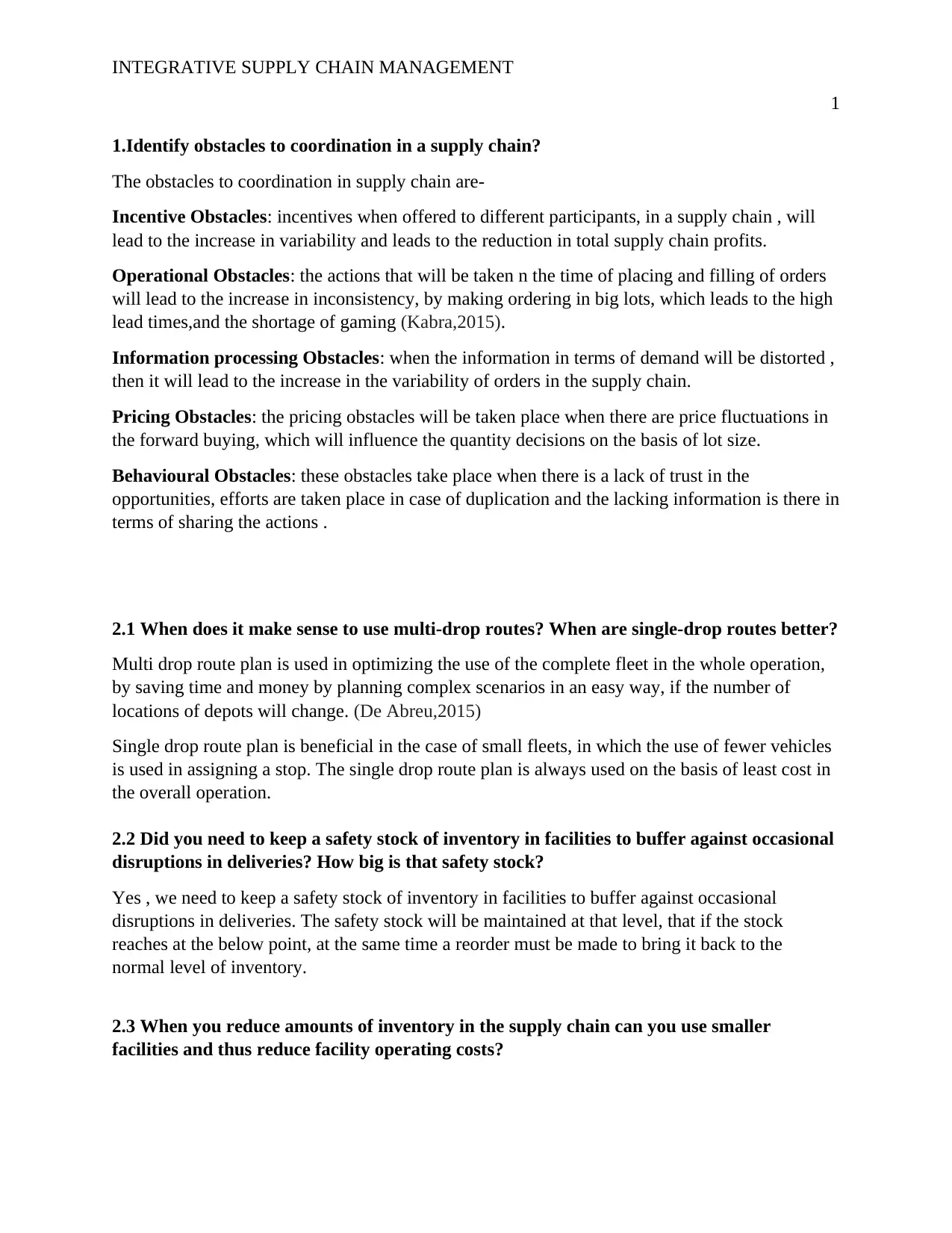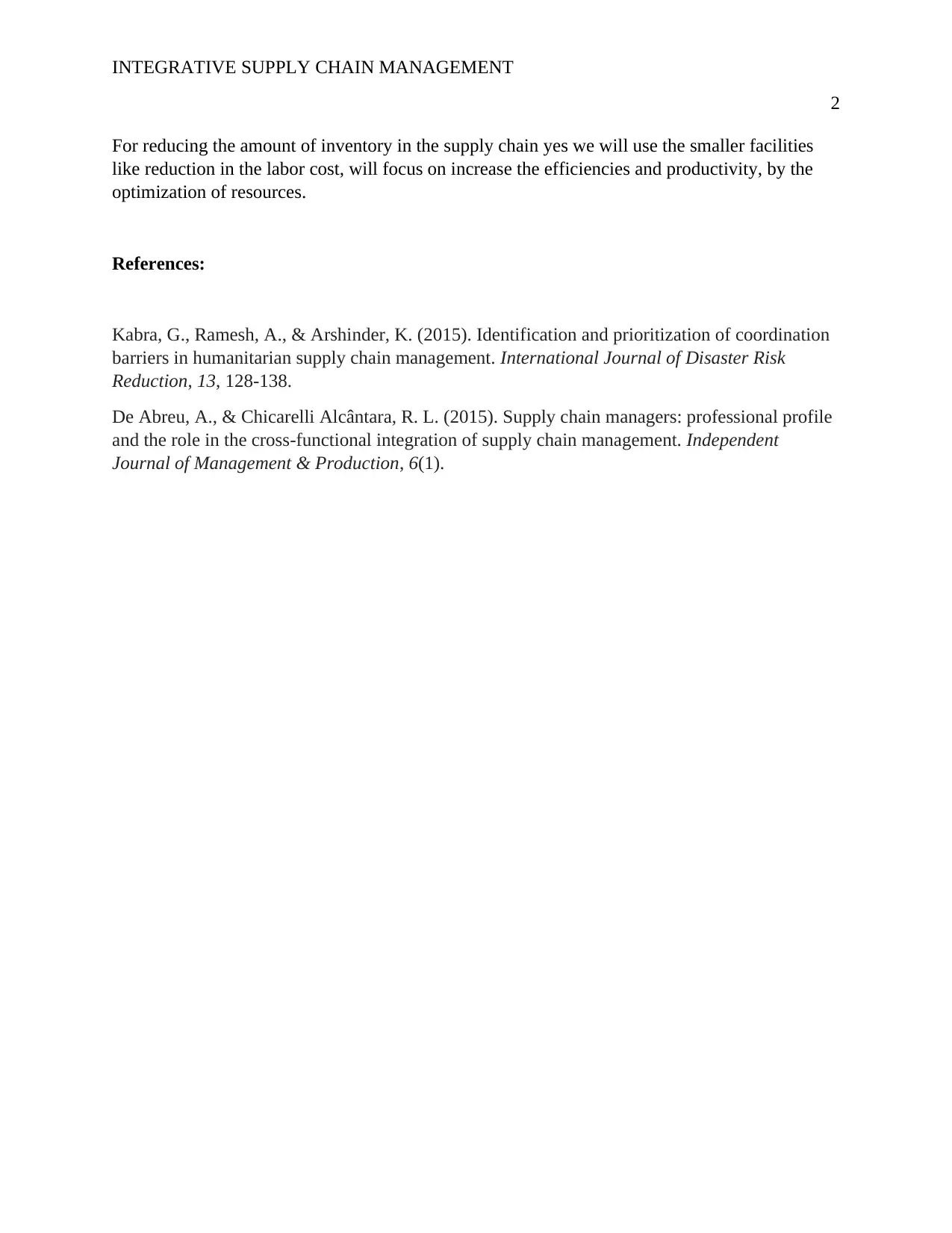Comprehensive Report: Integrative Supply Chain Management Analysis
VerifiedAdded on 2019/09/25
|3
|593
|357
Report
AI Summary
This report provides an analysis of integrative supply chain management, addressing key aspects such as identifying obstacles to coordination within the supply chain, including incentive, operational, information processing, pricing, and behavioral obstacles. It also examines the strategic use of multi-drop versus single-drop routes, outlining the advantages of each approach based on fleet size and operational efficiency. Furthermore, the report explores the necessity of maintaining safety stock to mitigate disruptions in deliveries and discusses the potential for reducing facility operating costs through optimized inventory levels and smaller facilities. The report references relevant academic sources to support its findings and conclusions, offering valuable insights into effective supply chain management practices.
1 out of 3







![[object Object]](/_next/static/media/star-bottom.7253800d.svg)